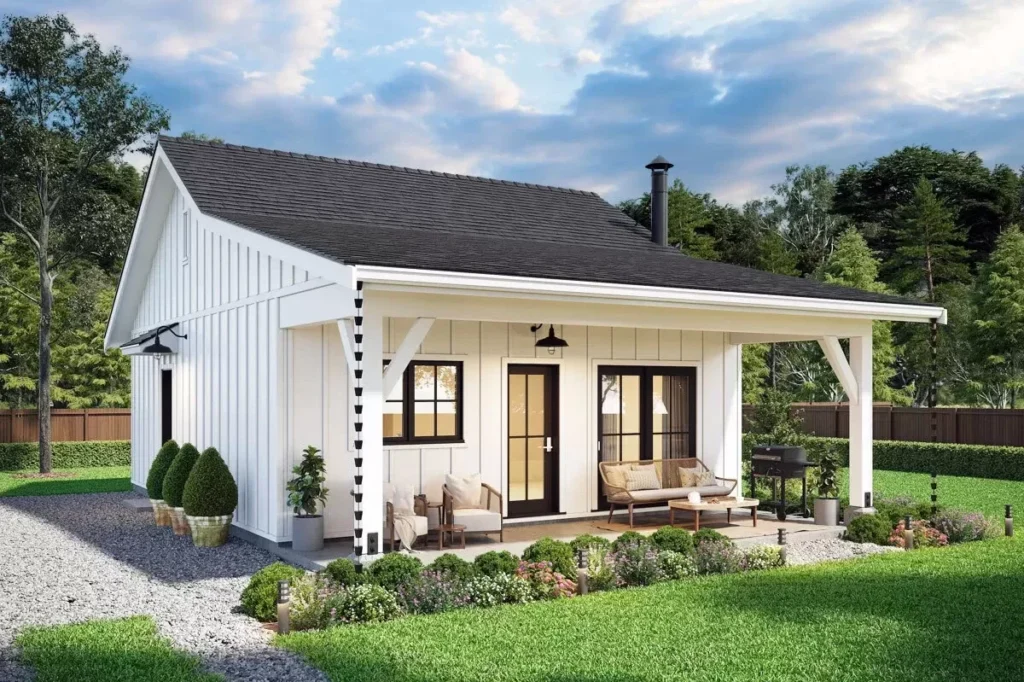
Accessory Dwelling Units (ADUs) have become one of the hottest topics in Massachusetts real estate and construction. Thanks to new legislation and a growing demand for housing, ADUs in MA are more accessible than ever. Whether you call them in-law apartments, granny flats, or backyard cottages, ADUs offer homeowners a way to create additional living space, generate rental income, or provide housing for family members.
In this comprehensive 2025 guide, we’ll cover the cost of ADUs in MA, the latest requirements and zoning changes, and the key benefits of building one on your property. If you’re a Massachusetts homeowner considering an ADU, this article will give you the insights you need to move forward with confidence.
An Accessory Dwelling Unit (ADU) is a secondary housing unit built on the same lot as a primary single-family home. ADUs can take several forms:
Detached ADU – A standalone structure in the backyard or side yard.
Attached ADU – An addition built onto the main home.
Garage Conversion – A finished living space created from an existing garage.
Basement or Attic ADU – Converted space within the primary home.
With Massachusetts passing new laws in 2024 to encourage ADU construction, homeowners now have more flexibility than ever to add these units to their properties.
One of the first questions homeowners ask is: “What does an ADU cost in Massachusetts?”
The average cost of an ADU in MA ranges between $150,000 and $350,000. Costs vary depending on size, design, finishes, and site conditions.
Design & Permitting: $15,000 – $30,000
Foundation & Site Work: $20,000 – $50,000
Framing & Structure: $40,000 – $80,000
Plumbing, Electrical & HVAC: $30,000 – $60,000
Interior Finishes: $25,000 – $80,000
Landscaping & Utilities Hookups: $10,000 – $25,000
For a 900 sq. ft. detached ADU, homeowners can expect to pay around $225,000 – $300,000, depending on materials and finishes.
The Affordable Homes Act of 2024 made ADUs legal “by-right” in most Massachusetts communities. This means that homeowners can now build ADUs without going through lengthy special permit processes, as long as they meet basic requirements.
Size Limitations: ADUs can be up to 900 sq. ft. or ½ the size of the primary home, whichever is smaller.
Parking: The state eliminated excessive parking requirements, making ADUs easier to approve.
Owner-Occupancy Rules: No longer required in most towns. Homeowners can rent both units if they choose.
Building Codes: ADUs must comply with the Massachusetts State Building Code for safety and habitability.
Wastewater & Septic: Homes on septic may need system upgrades to handle the additional unit.
Setbacks & Zoning: ADUs must comply with lot size, height, and setback rules, though towns have been directed to simplify these requirements.
ADUs aren’t just trendy — they solve real problems for Massachusetts homeowners. Here’s why more families are building them in 2025:
Generate steady monthly income by renting your ADU.
Offset mortgage payments and increase property value.
Provide housing for aging parents, adult children, or extended family.
Keep loved ones close while maintaining privacy.
A well-designed ADU can increase your property’s resale value significantly.
Buyers see ADUs as a flexible, income-generating asset.
ADUs create more housing options in communities struggling with affordability.
Many towns encourage ADUs to ease housing shortages.
Use as a home office, guest suite, or short-term rental (if allowed by your town).
Adaptable over time as family needs change.
While ADUs have major advantages, there are some important considerations:
Financing: Traditional mortgages may not cover ADU builds. Many homeowners use home equity loans or construction loans.
Utilities: Adding an ADU requires careful planning for water, sewer, and electrical connections.
Timeline: From design to completion, expect 8–12 months for a detached ADU.
HOA Rules: If you live in a neighborhood with a homeowners’ association, confirm that ADUs are allowed.
Building an ADU is more complex than a typical renovation. From navigating local zoning to coordinating multiple trades, experience matters. A professional ADU builder in Massachusetts can:
Handle design, permitting, and construction under one roof.
Ensure your ADU complies with the latest state and local requirements.
Provide realistic cost estimates and help manage your budget.
Deliver a high-quality build that maximizes ROI.
Ready to move forward? Here’s how to begin:
Consult a Local ADU Expert – Schedule a free consultation to discuss your property and goals.
Site Evaluation – Determine feasibility, utilities, and zoning compliance.
Design & Budget Planning – Create a custom plan and realistic cost estimate.
Permitting – Submit plans to your local building department for approval.
Construction – Expect a timeline of 6–12 months depending on complexity.
In 2025, ADUs in MA represent an incredible opportunity for homeowners. With costs ranging from $150,000 to $350,000, and with new statewide rules making construction easier, now is the perfect time to explore your options. Whether you want extra income, space for family, or to boost your property’s value, an ADU can be a smart, long-term investment.
At D&G Exteriors, we specialize in designing and building ADUs across Massachusetts. From initial consultation to final walkthrough, we handle every step of the process so you can enjoy a stress-free build.
Contact us today for a free consultation and let’s turn your ADU vision into reality!